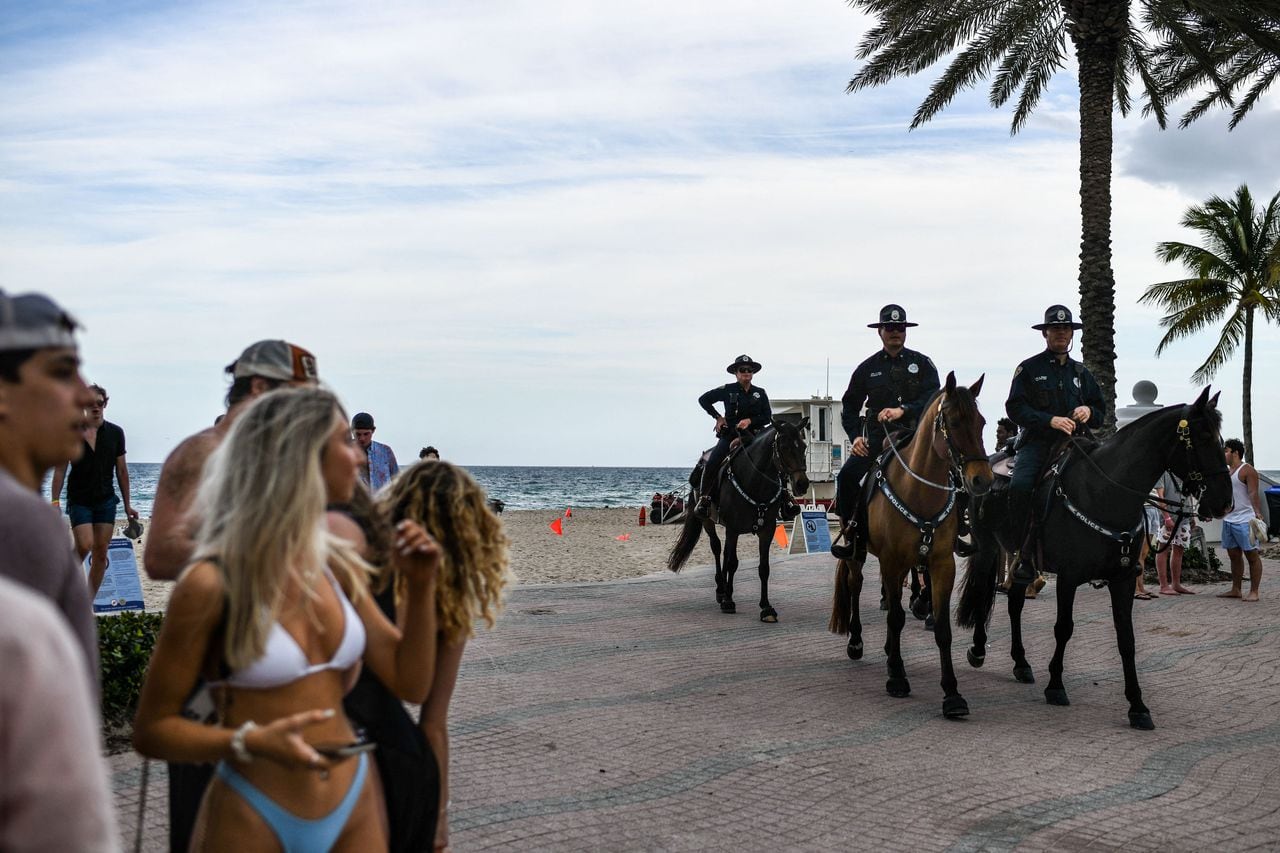Fort Lauderdale hopes to keep spring breakers away with $100 parking, alcohol restrictions
In an effort to alleviate traffic ahead of an expected influx of spring break visitors, the city of Fort Lauderdale is looking to enact new parking rate hikes similar to what Miami Beach recently put in place.
Parking fees could reach as high as $100 in city garages and lots along the beach starting next week until the end of March. And drivers will face a $125 violation fee if they don’t move their car by the time their street parking expires.
The measure to increase the parking fees came the same week that Miami Beach opted for sweeping parking closures in preparation for spring break.
The Fort Lauderdale City Commission is expected to approve the temporary hikes at its March 5 meeting. An initial vote on the increase was unanimously approved last week.
“If we find that our parking facilities are being overwhelmed, clearly we want to charge more money so we reduce the number of people that come in their vehicles,” Fort Lauderdale Mayor Dean Trantalis told the Miami Herald on Wednesday.
Trantalis said the city is encouraging visitors to use ride-sharing apps or to take the bus.
“We only have so many parking spaces, and once they’re overwhelmed, it discourages people from wanting to come visit our city,” he said. “We don’t want to discourage people — we want to embrace people who want to come visit and enjoy everything that we’ve come to enjoy over the years.”
Ride-share users are also encouraged to use designated pick-up and drop-off locations in downtown and near Fort Lauderdale Beach. All ride-share drivers will be prohibited from stopping along Fort Lauderdale Beach Boulevard, better known as A1A.
In addition to the increased parking rates and violation fees, alcohol, coolers, tents, loud music and electric scooters will be banned in certain areas.
The city will release more robust plans during a press conference Friday, but it has already created a website dedicated to providing more information about what to expect during spring break, including ride-share drop-off locations, road closures and law enforcement efforts. Part of those efforts is a “Bar Watch” program, a network including bar staff and police officers who know how to identify and act on potentially dangerous situations.
“We’re not trying to intimidate people through through various methods of law enforcement,” Trantalis said. “We are pretty proactive in our efforts and very demonstrative in our approach to law enforcement without trying to be intimidating or threatening because kids are kids. They want to have fun, but at the same time, there’s a range of conduct that we find acceptable. There are people that live here, also. There are families that come here, and we want to be a place for everyone.”
_____
©2024 Miami Herald. Visit at miamiherald.com. Distributed by Tribune Content Agency, LLC.
